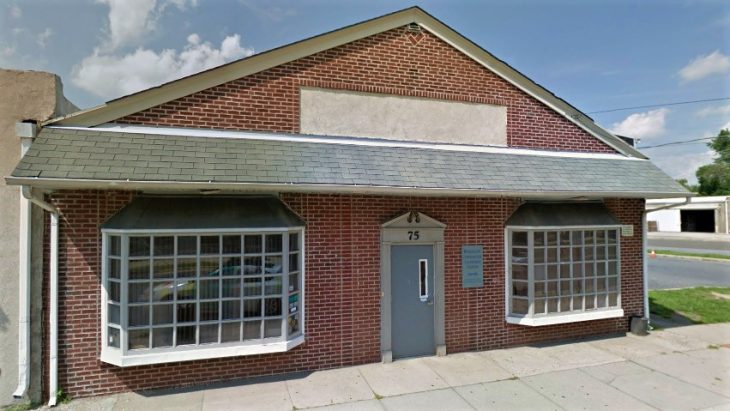Burlington Comprehensive Counseling

About Burlington Comprehensive Counseling
Burlington Comprehensive Counseling is an outpatient behavioral and substance use counseling center in Mount Holly, New Jersey. They serve adults and adolescents of diverse backgrounds and ages with culturally sensitive care. You may also be able to access bilingual counselors at this location.
Centrally located in downtown Mount Holly, they offer flexible evening and weekend hours as well as telehealth services to accommodate work and family obligations. They can also refer you to other levels of care, including detox services.
NJ Family Care, Medicare and Medicaid are accepted. If you don’t have insurance, you can ask about their discounted sliding fee scale for private payment. Some programs also offer state funding.
Medication Assisted Treatment (MAT) for Opioid Use Disorder
A great thing I noticed about them is their MAT program for opioid addiction. They prescribe FDA approved medications, such as methadone, buprenorphine or Vivitrol, to ease withdrawal symptoms and build stability.
You’ll participate in counseling and medical support to strengthen your overall wellness and reconnect with family, community and daily life. Relapse prevention strategies and aftercare planning are also part of the treatment process. As you progress in treatment, you may be eligible for take home medications.
Supporting Growth and Awareness with Supplemental Care
Another beneficial feature I noticed was their additional services. Along with intensive outpatient care, you can access HIV services and DUI programs. Case management is also available to connect you to community services, healthcare providers and programs that can strengthen your recovery and life skills.
Stories of Hope and Gratitude
Many clients say the clinic feels welcoming and organized, with faster access to take home medication than they’ve experienced elsewhere. A program alumnus said, “They saved my life. They’re all so understanding and are more than happy to help anyone who needs and wants the help.” Clinicians at Burlington describe their approach as compassionate and individualized to empower clients to rebuild their lives.
| Levels of Care | Detox Service Setting | Programs | Payment Options | |||
|---|---|---|---|---|---|---|
|
In outpatient therapy, you’ll attend therapy sessions several times each week while living at home. This is ideal if you have a strong support system and a lower risk of relapse. Outpatient treatment offers flexibility to maintain work, school or family obligations. |
||||||
|
Outpatient detox gives you access to medically supervised withdrawal services while still allowing you to live at home. You’ll attend a clinic for treatment and monitoring. This flexible option is suitable for those with mild to moderate withdrawal symptoms who have strong support systems. |
||||||
|
Adult programs address the substance use and life challenges specific to adults. Therapists can deliver sessions in individual, group and family settings. Services often include job support and life skills training in a structured environment. |
Alcohol detox programs offer medical support to help individuals withdraw safely from alcohol. Your care team may use medications to ease your symptoms and provide medical monitoring to address complications. |
Drug detox programs support individuals who are withdrawing from addictive substances like cocaine and heroin. Medical support helps you manage symptoms in a controlled and safe environment so you can achieve initial sobriety. |
Men's programs address substance use while also considering the social pressures, family roles and mental health concerns that are specific to men. You’ll learn healthy coping mechanisms as you build emotional resilience and develop communication skills. |
Opioid detox uses medications to ease severe withdrawal symptoms. It also includes medical supervision to help you manage potential complications. These services allow you to stabilize and begin a recovery plan. |
Women's programs offer a safe and supportive space to focus on gender specific issues such as trauma, family roles and mental health conditions. Therapists tailor the sessions to address women's needs and foster empowerment in a healing and nurturing environment. |
Young adult programs are designed for individuals who are transitioning into adulthood. Topics of discussion typically include identity, independence and peer relationships. Providers may also offer life skills training and career support. |
|
Medicaid
|
Self Pay
|
Levels of Care
In outpatient therapy, you’ll attend therapy sessions several times each week while living at home. This is ideal if you have a strong support system and a lower risk of relapse. Outpatient treatment offers flexibility to maintain work, school or family obligations.
Detox Service Setting
Outpatient detox gives you access to medically supervised withdrawal services while still allowing you to live at home. You’ll attend a clinic for treatment and monitoring. This flexible option is suitable for those with mild to moderate withdrawal symptoms who have strong support systems.
Programs
Adult programs address the substance use and life challenges specific to adults. Therapists can deliver sessions in individual, group and family settings. Services often include job support and life skills training in a structured environment.
Alcohol detox programs offer medical support to help individuals withdraw safely from alcohol. Your care team may use medications to ease your symptoms and provide medical monitoring to address complications.
Drug detox programs support individuals who are withdrawing from addictive substances like cocaine and heroin. Medical support helps you manage symptoms in a controlled and safe environment so you can achieve initial sobriety.
Men's programs address substance use while also considering the social pressures, family roles and mental health concerns that are specific to men. You’ll learn healthy coping mechanisms as you build emotional resilience and develop communication skills.
Opioid detox uses medications to ease severe withdrawal symptoms. It also includes medical supervision to help you manage potential complications. These services allow you to stabilize and begin a recovery plan.
Women's programs offer a safe and supportive space to focus on gender specific issues such as trauma, family roles and mental health conditions. Therapists tailor the sessions to address women's needs and foster empowerment in a healing and nurturing environment.
Young adult programs are designed for individuals who are transitioning into adulthood. Topics of discussion typically include identity, independence and peer relationships. Providers may also offer life skills training and career support.
Accreditations
Contact

Stephanie spent two decades as a healthcare marketer and content writer and has a degree in Speech Communications. She specializes in creating both medical and culinary content and lives in Central Illinois with her husband, best friend, and fellow homebody (conveniently, he’s all three). She’s dedicated to spreading kindness, living with honor, and advocating for that criminally underrated herb, fennel.

Mariah Bourne earned a Master of Arts in Community Social Psychology from the University of Massachusetts Lowell. She has worked as a research associate on addiction and treatment studies, including opioid craving interventions. Today, she is a freelance writer. She’s passionate about sharing knowledge and resources to help others start their recovery journey.




